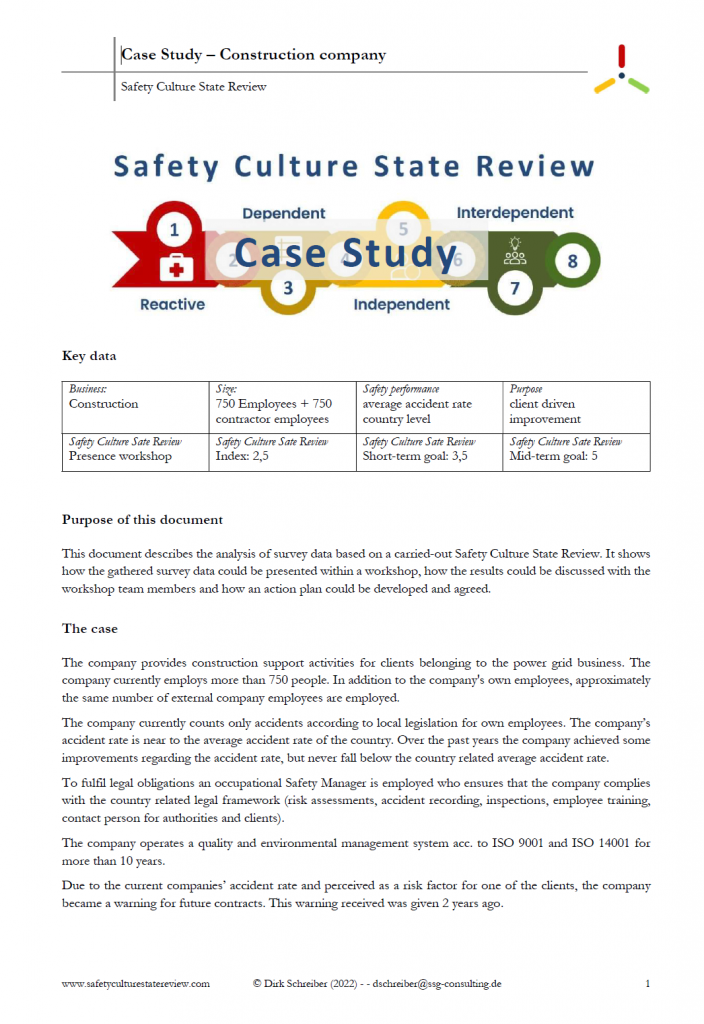Key data
| Business: Construction | Size: 750 Employees + 750 contractor employees | Safety performance average accident rate country level | Purpose client driven improvement |
| Safety Culture Sate Review Presence workshop | Safety Culture Sate Review Index: 2,5 | Safety Culture Sate Review Short-term goal: 3,5 | Safety Culture Sate Review Mid-term goal: 5 |
The Case
This case study demonstrates how the results of a Safety Culture State Review workshop can be analyzed and how appropriate measures can be defined in collaboration with the workshop participants. The review results are available immediately during the workshop.
The company provides construction support activities for clients in the power grid business and currently employs more than 750 people. Additionally, approximately the same number of external employees are engaged in company operations.
Currently, the company records only accidents involving its own employees, as required by local legislation. The accident rate remains close to the national average. While some improvements have been made over the years, the company has never achieved an accident rate lower than the national average.
To meet legal requirements, the company employs an Occupational Safety Manager responsible for ensuring compliance with national safety regulations. This includes conducting risk assessments, recording accidents, performing inspections, training employees, and serving as the main contact person for authorities and clients.
For over ten years, the company has maintained a quality and environmental management system in accordance with ISO 9001 and ISO 14001 standards.
Due to its accident rate, which was perceived as a risk factor by one of its clients, the company received a warning regarding future contracts two years ago. Since no significant improvements in safety performance have been achieved since then, management decided to conduct a Safety Culture State Review to identify key areas for improvement.
The Safety Culture State Review was conducted as an in-person workshop with 25 managerial participants and was moderated by the internal Safety Manager. The workshop was structured into four sections:
a) The importance of safety culture in improving safety performance
b) Safety Culture State Review Survey – evaluation of 20 dimensions by the participants
c) Presentation of the results
d) Definition of specific measures to enhance the company’s safety culture




